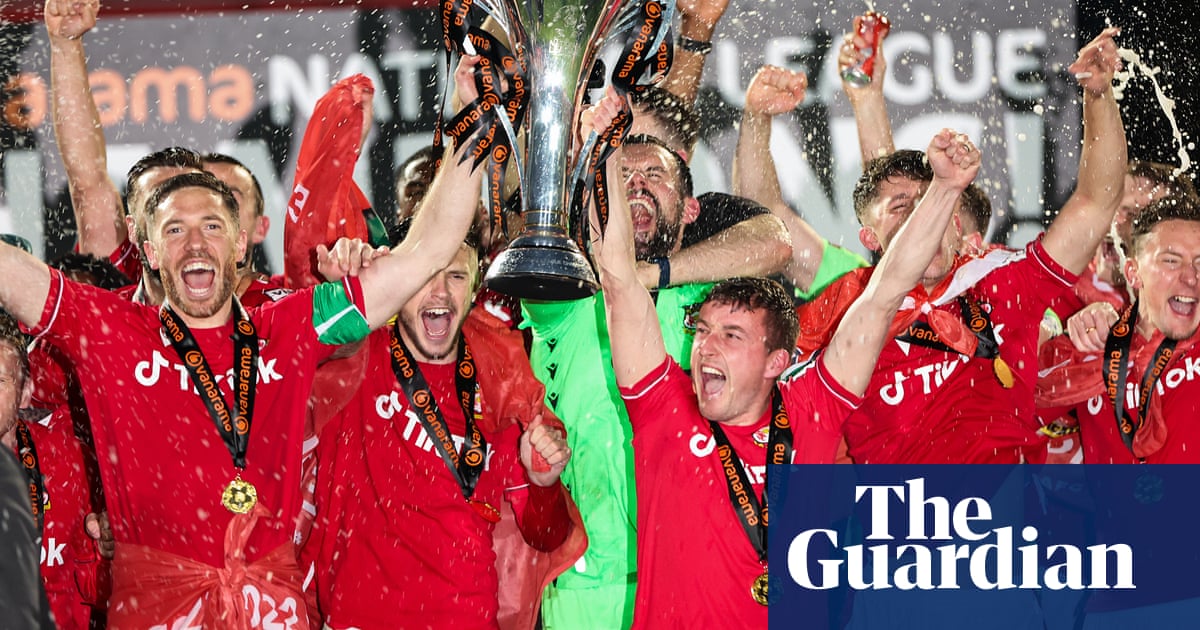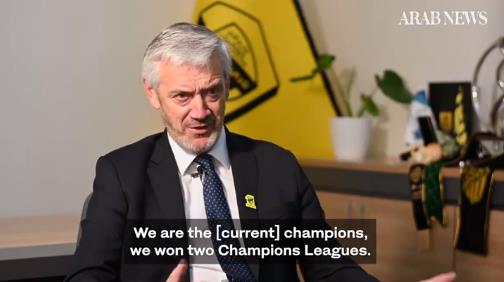
Waleed Al-Hosani has been Arabian Gulf League CEO for 18 months
Al-Hosani"s vision for the league includes making attending matches more appealing to fans
DUBAI In an unassuming office
block above an Audi showroom in Abu Dhabi, Waleed Al-Hosani is plotting the future of professional football in the UAE.
It is a task that requires creativity and the Pro League Committee (PLC) workspace is certainly conducive to that; a replica substitutes’ bench complete with leather chairs sits in the reception area, while a running track weaves its way among the desks and chairs.
The PLC office is bright and innovative, mirroring Al-Hosani, who for 18 months has been the organization’s CEO. In that time, the Emirati has already demonstrated significantly more foresight than his predecessors. Al-Hosani’s goal is to reinvigorate the Arabian Gulf League (AGL).
From the outside, it may appear that it does not need reinvigorating. UAE clubs have appeared in two of the past three AFC Champions League finals and the UAE has been ranked as the AFC’s best league for the past four years. Millions of dollars have been plowed into the AGL, with marquee players improving the standard of football and ensuring progress to the latter stages of continental tournaments.
Competitiveness is not, however, the criteria that concerns Al-Hosani.
Last season, the average attendance for AGL matches was just 2,500. The league commands some princely sums in TV rights and reportedly attracts an impressive viewership of up to eight million people. But empty stands are a source of both embarrassment and worry.
Tackling this fan apathy is the central tenet of the PLC’s new four-year plan, introduced at the start of the 2017-18 season.
“Poor attendances is the biggest issue we are facing in the Arabian Gulf League,” Al Hosani told Arab News.
“When the Pro League Committee first launched in 2007, the focus was on investing in the teams, getting better players from around the world and creating a big buzz in the media.
“Unfortunately they didn’t manage to balance this with community engagement. This has resulted in clubs becoming closed, not realizing the role they can play in the community and the responsibilities they have to preserve and develop their fanbase.”
This failure by the clubs strikes a personal chord with Al-Hosani. Raised within a stone’s throw from Al-Wahda FC in Abu Dhabi, the PLC chief spent his childhood immersed in the club.
“For many of us, Al-Wahda was our life,” he recalled. “Of course we played football there whenever we could. But beyond that they put on classes to helped us with maths and English, we went bowling — there were a lot of activities. It created loyalty between us and the club.
“Somewhere along the way, this was lost. You look around the AGL and that sort of environment doesn’t exist. I think I’m fortunate I had this experience in my childhood as I can now try to recreate that feeling for people again.”
Diverting money away from transfers and salaries and into infrastructure has been the PLC’s main aim this season. Each club now has a budget set aside for marketing and community activities, which must be designed with long-term benefits in mind.
“A lot of clubs want to use the money for
prizes but you cannot buy loyalty. A few years ago, Al-Jazira did an amazing giveaway — if you attended matches you could win a Ferrari. It received a lot of attention and attendances exploded that season.
“It was a nice project but when it finished, the fans were gone. The people didn’t come for the club, they came for the prizes. We want to avoid that — we want to build a new, loyal generation of supporters.”
Al-Hosani is demanding that clubs focus their efforts on engagement with supporters. He wants to see community initiatives and liaison with schools and neighborhoods — in order to create a greater sense
of belonging.
The matchday experience, too, is a target for improvement. It has been lacking for some time for UAE football fans, who have grown accustomed to broken Wi-Fi and closed food and beverage outlets. The rebuilding and refurbishment of a number of stadiums ahead of next year’s Asian Cup in the UAE will be a welcome boost for supporters.
“The improved stadiums will help many clubs,” Al-Hosani explained. “But it’s not enough — we want them to build fan zones, F&B structures — anything that improves the experience of going to an AGL match for fans.
“This change is not easy as most clubs have never thought about it, but that is why we are providing workshops and education so they can understand how to engage
with the fans and increase the attendances.”Even the act of purchasing a ticket is now significantly easier. It seems remarkable that just a year ago, the majority of UAE football supporters could only buy a ticket when they arrived at the stadium. The introduction of a new central online ticketing system, in English and Arabic,
has created a more efficient mechanism that also opens up the AGL
to a wider audience.
Attracting expats and tourists to games has long been regarded as the Holy Grail for the AGL. Almost 90 percent of the country’s population are non-UAE nationals, but in the 11 years since the Pro League Committee was formed it has failed to unlock the secret of how to get them to matches. More accessible tickets is the first step, according to Al-Hosani, who has been encouraging clubs to recognize the importance of diversifying their fanbase. “Reaching out to expats is of course vitally important. I’m not sure why we are so late to do this but based on my experience when I was a fan of the league, I think the initiatives weren’t consistent. Maybe they did one campaign and then stopped for two years before doing another one. “We are working on future promotional activities. We will go to beaches, malls, public gardens — we will do kids’ activities, entertainment, competitions — we want people to know the AGL. The key is to be patient and persistent.”
A desire for quick wins has long been an issue for both the league and its clubs, who are notoriously trigger-happy with their managers. Al-Hosani and his PLC team are working hard to change that mentality and have already made admirable inroads. “As any change anywhere in the world, it’s difficult,” Al-Hosani said. “People are afraid of the unknown, this is natural. There will be resistance but there is a growing understanding that these changes will benefit UAE football in the
long term.”












